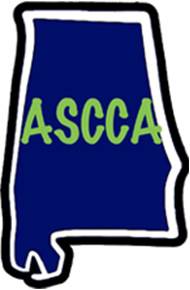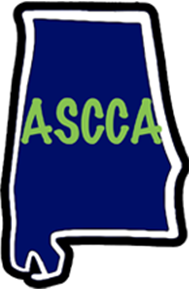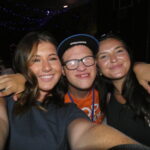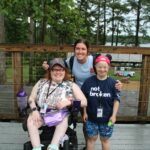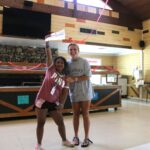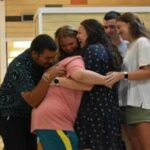Sorority sisters walk out of Ralph Brown Draughon Library seeing their sophomore sister sitting at a table. They quickly walk over and give Anna Wilson a hug. The only thing different about this rather casual occurrence on Auburn University’s campus is that Anna can’t hug them back.
Wilson is a quadriplegic, meaning she is paralyzed from the neck and has no movement in her arms or legs. At 19 years old, Wilson has been in a wheelchair for the past 11 years. But she has never allowed her disability to slow her down, even when it came to finding a college to attend. The decision wasn’t easy. She had to consider things other college students don’t, like how easy would it be for her to go from one class to another, or how would she be assisted to take tests and complete homework assignments.
At 8 years old, Wilson was an independent child who wanted to do everything by herself. She took pride in doing things on her own. In February 2004, she was accidently shot in her head by her 16-year-old brother in their home in Clanton. Fortunately, Wilson’s brother had finished taking a CPR course two months before the accident.
“A lot of the paramedics and doctors said that if he wouldn’t have performed CPR on me, then I would have died that day,” Wilson said. “God knew what he was doing.”
The bullet missed her eye and buried itself in her spinal cord. Wilson’s first prognosis was that she would be in a vegetative state the rest of her life. After spending a few months recovering in the hospital, she began to show signs of improvement.
“There was a receptionist who would come in my room every morning and with her long fingernails would scratch the bottom of my foot,” Wilson said. “And one day I jerked.”
Three months after the accident, Wilson was able to go home. Her mother, Carla, became her full-time caregiver. Wilson finally returned to school at the beginning of fourth grade. She was allowed to go for a few hours each day, and her other hours were spent rehabbing or at home. When it was time for Wilson to start high school, doctors told her she could decide whether to go back to school full-time and stop rehabbing or continuing her rehab and miss more school. Wilson chose school. Four years later, she not only graduated high school, but did so as the valedictorian of her class.
“She was the valedictorian at her high school and she did pretty well on her ACT,” Wilson’s mother said.
“Not as well as I wanted,” Wilson chimed in.
During her senior year of high school, Wilson began looking at colleges she would like to attend that had the major she wanted to study, industrial systems engineering. Unlike most college students, her list of requirements for a school went beyond just what major she could study in. She began looking at schools that also provided excellent accessibility for students around campus and in the classroom.
“I applied to the University of Alabama at Huntsville, which has a great engineering program,” Wilson said. “Their accessibility office just wasn’t up to where I needed it to be. Their transit buses didn’t have wheelchair accessibility like Auburn’s do.”
She toured Auburn and on that tour she met Barclay Bentley, a disability specialist in the Office of Accessibility, who told the Wilsons how Auburn would be able to accommodate her. After meeting Bentley, Wilson and her family felt she would not only get the education she wanted, but would also have the help she would need to do it. Wilson made her decision to attend Auburn University beginning in August 2014.
“She’s incredible. She is as motivated and driven as any student that I’ve ever worked with,” Bentley said.
At the beginning of each semester, Wilson meets with Bentley and he begins making preparations for her in each of her classes. He ensures that the buildings she goes to are accessible, and also speaks with teachers about test accommodations. Wilson is allowed time and a half on her tests, with a proctor to administer her tests and write down the answers she gives.
A struggle for anyone with disabilities is finding ways to access older buildings. That is especially true on college campuses, where many of the buildings were built in the early 1900s before disability accommodations were required.
“We can’t do a whole lot structurally to change the way some buildings were made,” Bentley said.
Graham Sisson, executive director of the Governor’s Office on Disability, said the reason many buildings can’t be structurally changed is because they are considered historic buildings. With that designation, they are not allowed to have their structure changed or altered on the inside. Sisson believes there are actions that can be taken, but then money becomes an issue.
“It’s usually funding issues. It always comes down to money,” Sisson said.
Bentley said Auburn University has recently made changes to Comer and Langdon halls by adding wheelchair ramps outside. Making small changes like this to the outside of buildings allows people with disabilities to access buildings they once were limited in entering, instead of altering the structure and foundation of the building itself.
“Since I became the state (Americans with Disabilities Act) coordinator in 1993, I’ve seen a good deal of improvement in accessibility,” Sisson said.
Wilson is happy with her decision to attend Auburn University. She said working with Bentley and the Office of Accessibility has gone better than she expected. She also credits her teachers for her success so far in college.
In all her years after the accident, Wilson said she has found ways to adapt in every circumstance. Whether that is how to eat, how to get ready every day or how to be a college student, she has figured out how to do it.
“We’ve always told her that just because she’s in that wheelchair, that does not limit her to thinking she can’t do anything,” Wilson’s mother, Carla, said. “We might have to find more ways to do it, but she can do anything she sets her mind to.”
Wilson plans to co-op this summer to gain some real-world experience outside the classroom. There is still some planning to be done so that she can find the right place to co-op, and she and her mother both are unsure of the new challenges they will face.
“This is going to be a whole new ballgame,” Wilson said. “Just because I’m in a wheelchair doesn’t mean I can’t do it, though.”
